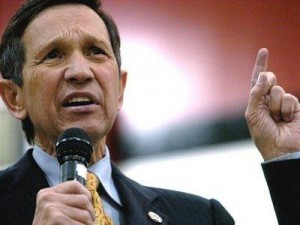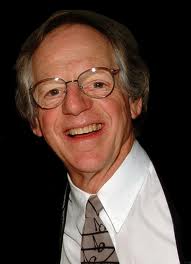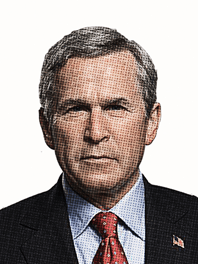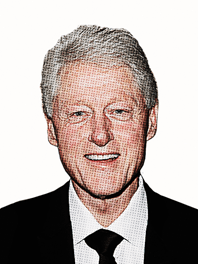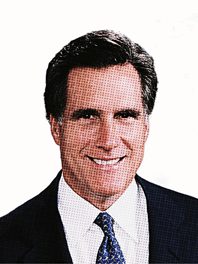 by Samar Al-Bulushi and Adam Branch
by Samar Al-Bulushi and Adam Branch
The United States, which has never joined the International Criminal Court for fear that it might be prosecuted for crimes against humanity, is gearing up to use the ICC as a pretext to act as world gendarme. “The ICC risks becoming the latest pawn of US military strategy on the continent…in particular in conjunction with AFRICOM”
This article previously appeared in Pambazuka.
“The court has begun to seek support from the one country that has shown itself willing and able to wield military force across the globe: the United States.”
The ICC’s Enforcement Crisis
Nearly eight years since its establishment in July 2002, and with its first major review conference just around the corner, the International Criminal Court (ICC) faces a number of challenges. The fact that it has prosecuted only Africans has provoked charges of neocolonialism and racism; its decision to indict certain actors and not others has triggered suspicion of the court’s susceptibility to power politics; and its interventions into ongoing armed conflicts have elicited accusations that the ICC is pursuing its own brand of justice at the cost of enflaming war and disregarding the interests of victims.[1] Each of these concerns is likely to provoke heated discussions at the review conference in Kampala next week.
But there is another aspect of the court’s role in Africa that will require scrutiny going forward: enforcement. Lacking its own enforcement mechanism, the court relies upon cooperating states to execute its arrest warrants. The ICC has found, however, that many states, even if willing to cooperate, often lack the capacity to execute warrants, especially in cases of ongoing conflict or when suspects can cross international borders. Moreover, the African Union (AU) has rejected the ICC’s arrest warrant for its most high-profile target, Sudanese President Omar al-Bashir, and ICC supporters worry that the AU will continue to challenge the court’s authority, especially when the court targets African leaders. The court today thus faces an enforcement crisis: out of 13 arrest warrants issued, only four suspects are in custody. Apparently, having concluded that African states are either unwilling or unable to act quickly or forcefully enough to apprehend suspects, the court has begun to seek support from the one country that has shown itself willing and able to wield military force across the globe: the United States.
“The ICC prosecutor declared the need for ‘coalitions of the willing,’ led by the US, to enforce ICC arrest warrants.”
The ICC’s Office of the Prosecutor is leading this effort. In June 2009 at a public event in the US, Chief Prosecutor Luis Moreno-Ocampo declared the need for “special forces” with “rare and expensive capabilities that regional armies don’t have,” and said that “coalitions of the willing,” led by the US, were needed to enforce ICC arrest warrants. More recently, Special Adviser to the Prosecutor Béatrice Le Fraper du Hellen declared to CNN, “We have our shopping list ready of requests for assistance from the US government,” which, she asserted, “has to lead on one particular issue: the arrest of sought war criminals. President al-Bashir, Joseph Kony in Uganda, Bosco Ntaganda, the ‘Terminator in Congo’ — all those people have arrest warrants against them, arrest warrants issued by the ICC judges, and they need to be arrested now.” She said that the ICC needed American “operational support” for the Democratic Republic of Congo (DRC), Uganda and the Central African Republic (CAR) “to assist them in mounting an operation to arrest him [Kony]. They have the will—so it’s a totally legitimate operation, politically, legally—but they need this kind of assistance. And the US has to be the leader.”[2]
The ICC’s entreaties are a response to an apparent re-assessment of US–ICC relations undertaken by the Obama administration and to the inception of a new US policy of pragmatic, ad hoc engagement with the court. Indeed, in recent months, the US government has declared its interest in working more closely with the ICC – not with the intent of becoming a party to the Rome Statute (the ICC treaty), but to help execute arrest warrants. In late March, Stephen Rapp, US ambassador-at-large for war crimes, stated that: “The United States is prepared to listen and to work with the ICC and go through requests that the prosecutor has.” He continued: “There may be obstacles under our law. But we’re prepared to do what we can to bring justice to the victims in the Democratic Republic of Congo, in Uganda, and Sudan and in the Central African Republic.”[3]
“What will mean for justice and the rule of law if the ICC comes to rely heavily on the military capacity of a single state, in particular when that state declares itself above the very law it claims to enforce.”
And State Department Legal Adviser Harold Hongju Koh declared in March that the US is seeking cooperation with the court as a non-state party observer: “The Obama Administration has been actively looking at ways that the US can, consistent with US law, assist the ICC in fulfilling its historic charge of providing justice to those who have endured crimes of epic savagery… We would like to meet with the Prosecutor at the ICC to examine whether there are specific ways that the United States might be able to support the particular prosecutions that are already underway.”[4] A recent Council on Foreign Relations report echoed these sentiments, recommending that the Obama administration not ratify the ICC treaty, but “consider boosting its cooperation with the court in such areas as training, funding, the sharing of intelligence and evidence and the apprehension of suspects.”[5]
This proposed alliance between the US military and the ICC has elicited little reaction from the human rights community despite the devastating consequences it may produce. At heart is the question of what it will mean for justice and the rule of law if the ICC comes to rely heavily on the military capacity of a single state – a state with its own military agenda and interests in Africa – as its enforcement arm, in particular when that state declares itself above the very law it claims to enforce. The ICC appears to be trading its independence in return for access to coercive force, a Faustian bargain that will be made at the price of the court’s legitimacy, impartiality and legality, and the Western human rights community seems to be accepting this bargain as a necessary price to pay to encourage any US engagement with the court. But the price paid by the ICC will be trivial compared to the very dangerous possibility that this alliance could help justify and expand US militarization in Africa, in particular in conjunction with AFRICOM (Africa Command), at a dramatic cost to peace and justice in the continent.
US Interests in the ICC
US overtures for pragmatic engagement with the ICC in Africa should be understood in the context of increased US military engagement in Africa, particularly the new military command for the continent, AFRICOM. Since the US announced the creation of AFRICOM in 2007, activists have sounded alarm bells about its implications. Recalling the Cold War legacy of intervention that contributed to the militarization of African states and the funding of proxy forces, they are concerned that AFRICOM will serve as a vehicle to expand the “war on terror” into Africa, to secure US access to Africa’s oil and to challenge China’s increasing commercial and political influence. They cite dwindling development aid as contrasted with massive increases in foreign military financing via AFRICOM as evidence of the US government’s prioritization of narrow security interests over democracy, the rule of law and African interests more broadly.[6] Gender rights activists have highlighted the potential for AFRICOM to undermine efforts to demilitarize African communities, particularly those emerging from conflict.[7] Considering the US track record of destructive interventions in Africa during the Cold War and the US military’s disregard for international law in Iraq and Afghanistan, Africans have reason to be wary of greater US military involvement on their soil. The possibility that AFRICOM might add justice enforcement to its repertoire is therefore a genuinely troubling development, and the ICC risks becoming the latest pawn of US military strategy on the continent.
“In place of direct intervention (which would trigger unwanted scrutiny), the US prefers to rely on proxies to carry out its military agenda.”
For one, just as the US invokes counter-terrorism as a basis for military assistance to African states, it may come to use international justice enforcement to justify increased militarization of select African armies. This fits well with AFRICOM’s general strategy: in place of direct intervention (which would trigger unwanted scrutiny), the US prefers to rely on proxies to carry out its military agenda.[8] As the US attempts to expand its sphere of influence in Africa through local “partners,” the ICC may inadvertently justify the militarization of African states in the name of international law enforcement. History provides a chilling lesson in the impact of US military aid to Africa – more than US$1.5 billion worth of weapons were transferred to the continent during the Cold War,[9] most of it to authoritarian and repressive regimes whose legacies are painfully felt in ongoing cycles of violence and instability in many African countries.[10]
Secondly, ICC arrest warrants could provide the US with justification for the direct use of military force where desired. In the words of the prosecutor’s special advisor, the ICC offers a convenient way to make military action (such as the pursuit of the Lord’s Resistance Army (LRA)) “a totally legitimate operation, politically, legally,” without having to overcome the political and legal obstacles in the way of Security Council authorization for the use of force. Like the impunity that characterized the US and UN “humanitarian” intervention in Somalia in the 1990s,[11] political and human destruction wreaked by US military actions under ICC cover will be dismissed as “collateral damage” in the name of international law enforcement. It is probably safe to predict that the US will avoid ICC scrutiny for any use of military force as long as the ICC depends upon US military capacity.
“ICC arrest warrants could provide the US with justification for the direct use of military force where desired.”
And US allies in Africa could enjoy similar impunity thanks to the Bush-era bilateral immunity agreements guaranteeing US citizens protection from ICC prosecution and, in some cases, guaranteeing that the US would not hand over individuals from those African countries to the court. An April 2010 Congressional Research Service report on AFRICOM confirms that the Obama administration has no intention of reversing these immunity agreements.[12]
Instead of bringing the US back within international law, the proposed US “engagement” with the ICC would thus allow the US to declare itself above international law while using international law for its own interests. The human rights community must not be complicit in this charade and must hold the US and the ICC to account.
Politicization of the ICC
If the ICC partners with US military power, the politicized “justice” that the ICC effects will not only create a geography of impunity in Africa, but will also lead to increased accusations of partiality against the court. And it is hard to imagine that the ICC, in its reliance on US enforcement capacity, would be able to avoid politicization and not fall into the trap of prosecuting only those the US is willing to capture, regardless of crimes committed.
The vast discretion afforded to the Office of the Prosecutor by the Rome Statute and the lack of transparency that characterizes the prosecutor’s decisions as to whom to prosecute and why is unlikely to provide any check on this type of politicization. Luis Moreno-Ocampo has shown himself willing to take full advantage of the discretion provided him, practicing immense selectivity in his investigations and prosecutions. Even if the prosecutor were to try to prosecute US allies, the US could exert its influence by threatening to revoke funding or support for the court or by interfering with its internal workings. US meddling in supposedly independent international criminal tribunals has been documented elsewhere, including having Carla del Ponte removed from her position as prosecutor of the International Criminal Tribunal for Rwanda in 2003 when she sought to investigate the US-allied Rwandan government for war crimes.[13] If the ICC is seen as working hand-in-glove with US interests in Africa, its legitimacy may end up fatally damaged.
Expansion of AFRICOM
The appointment of AFRICOM as the ICC’s police officer in Africa may, along with providing cover for US military operations and for the militarization of African states involved in ICC enforcement operations, also help establish a long-term US military presence on the continent. After US forces have set up bases or surveillance centers as part of a law enforcement operation, it will be easy for that military presence to remain long after the actual “enforcement” operation has ended. Once US drones are circling overhead hunting ICC suspects, these drones could easily keep circling, collecting intelligence and carrying out ‘targeted assassinations’ when required.
One recent incident may provide a taste for what is to come through an AFRICOM–ICC alliance. In December 2008, a military operation coined “Operation Lightning Thunder” was carried out principally by the Ugandan military with training and financial support from AFRICOM against the rebel Lord’s Resistance Army, the top commanders of which have outstanding ICC arrest warrants against them. The operation failed to capture the LRA leadership, however, and led to over 1,000 civilian deaths and the displacement of up to 200,000 Congolese.[14]
Despite the devastating consequences of that operation for civilians, the US Congress recently passed legislation authorizing intensified US-led military action in the region “to apprehend or otherwise remove Joseph Kony and his top commanders from the battlefield.” The legislation includes no commitment to upholding the ICC’s arrest warrants, but Senator Russ Feingold, a co-sponsor and vocal advocate of the bill, stated that the effort to stop the LRA is “exactly the kind of thing in which AFRICOM should be engaged.”[15] In its latest report on the LRA, the International Crisis Group supported the bill and called for long-term US military engagement in the region: “Uganda and the US should see that getting rid of Kony may win them praise and be politically valuable, but removing the LRA requires going further. They should prepare now to continue operations after Kony is caught or killed,” with mechanisms to “review the operation every four months to assess civilian casualties and increase civilian protection measures accordingly,” signaling the projection of a long-term US military deployment in the region, a deployment justified originally as part of an effort to apprehend the LRA leadership.[16]
“After US forces have set up bases or surveillance centers as part of a law enforcement operation, it will be easy for that military presence to remain long after the actual ‘enforcement’ operation has ended.”
The presence of US military on African soil raises a number of concerns for those communities where they are deployed. Former US Army Colonel Ann Wright warned against deploying US soldiers in the Democratic Republic of Congo, citing the high number of rape and violent sexual assault cases in the US military and by US military personnel against women and girls in areas around US military bases.[17] As she stated, “If the women of the Congo should Google, ‘US military – sexual assault and rape,’ I suspect they will decline the offer of assistance from the African Command.”
Similarly, given the massive civilian devastation wreaked by recent US military interventions in Iraq and Afghanistan, it is likely that most Africans would say “no thank you” to the offers of justice from the barrel of American guns. This is especially the case given that many of these law enforcement operations may be carried out not by uniformed US soldiers, but by US-contracted private security firms who anticipate a boom in business thanks to AFRICOM.[18] Given the near total lack of accountability that private contractors have enjoyed in Iraq and Afghanistan, this should also give human rights and peace advocates considerable pause for thought.
Finally, regardless of how the proposed cooperation works out in practice, there is the underlying issue that, for people in many areas of the world, the idea that US military force is the chosen instrument of global justice makes a mockery of the violence and devastation they have suffered at the hands of US military intervention. The ICC’s pandering to the US military is an insult to all those in the US and around the world struggling to hold the US military and its mercenaries accountable. The quest for global accountability will only become more difficult if the US military is appointed by the ICC as the chosen agent of global justice instead of being a force that itself needs to be held accountable.
Preserving the Rule of Law
In order to ensure that any future ICC–US cooperation builds, rather than undermines, the rule of law, human rights activists, in particular at the ICC Review Conference, have a right and responsibility to make several demands:
First, that the US sign and ratify the Rome Statute as a signal of its commitment to the rule of law
Second, that all US-initiated bilateral immunity agreements be nullified
Third, that if the ICC works with the US while the US is not a state party, it should do so in an open, transparent and accountable manner.
Most important, it is up to all human rights and peace advocates to make clear that we will not allow the enforcement of international justice to be used as a cover for US militarisation of Africa and for the dangerous expansion of AFRICOM in the continent.
Samar Al-Bulushi is an independent researcher examining the influence of external actors on peace and justice debates in Africa. Adam Branch is assistant professor in the Department of Political Science at San Diego State University. Please send comments to editor@pambazuka.org or comment online at Pambazuka News.
NOTES
[1] See for example: Mary Kimany, ‘International Criminal Court: Justice or Racial Double Standards?’ Afrik.com, 16 December 2009 available hereat ; Hama Tuma, ‘ICC and Omar Bashir no friends of Ethiopia…Contempt for Africa or Justice Served?’ Afrik.com, 9 March 2009 available athttp://en.afrik.com/rejoinder15397.html; Adam Branch, ‘Uganda’s Civil War and the Politics of ICC Intervention,’ Ethics and International Affairs, 2007, available at http://www-rohan.sdsu.edu/~abranch/Publications/index_pub.html; Mayank Bubna, ‘The ICC’s Role in Sudan: Peace versus Justice,’ Eurasia Review, 28 April 2010, available here.
[2] George Lerner, ‘Ambassador: US moving to support international court,’ CNN US on-line, www.cnn.com/2010/US/03/24/us.global.justice
[3] George Lerner, ‘Ambassador: US moving to support international court,’ CNN US on-line, www.cnn.com/2010/US/03/24/us.global.justice
[4] Harold Hongju Koh, ‘The Obama Administration and International Law,’ Keynote Speech at the Annual Meeting of the American Society of International Law, 26 March 2010. http://www.state.gov/s/l/releases/remarks/139119.htm
[5] Vijay Padmanabhan, From Rome to Kampala: The US Approach to the 2010 International Criminal Court Review Conference. Council on Foreign Relations Special Report No. 55, April 2010.
[6] See for example, ‘African Voices on AFRICOM,’ at
http://www.pambazuka.org/en/category/comment/47047 See also A. Sarjoh Bah and Kwesi Aning, ‘US Peace Operations Policy in Africa: From ACRI to AFRICOM,’ International Peacekeeping, 2008. See also Daniel Volman and Beth Tuckey, ‘Militarizing Africa (Again),’ Foreign Policy in Focus, 20 February 2008 at http://www.fpif.org/articles/militarizing_africa_again
_______________
(II)
Pushing back against Kony 2012
But with all the praise [for Kony2012] has come criticism from Ugandans, some who insist the 30-minute video oversimplifies the issue, misrepresents the country and is factually inaccurate.
Timothy Kalyegira, a popular social critic in Uganda told The Associated Press.
Others say Invisible Children is urging military intervention in the country and lament that it has only put 32% of the $8.6 million it raised last year toward direct action.
This criticism is helpful, but it’s worth noting that the viral phenomenon has triggered an unusually prompt and energetic response in many well-informed quarters. Consider the post below, which zeroes in on the political genealogy of Jason Russell.
Invisible Children “Kony 2012” Leader Suggests It’s About Jesus and Evangelizing
Is one of the biggest viral video in history Christian fundamentalist propaganda? Invisible Children’s founder lays out his agenda at Liberty University.
By Bruce Wilson, Alternet
March 8, 2012 |

Photo Credit: Sean Dreilinger
“A lot of people fear Christians, they fear Liberty University, they fear Invisible Children – because they feel like we have an agenda. They see us and they go, “You want me to sign up for something, you want my money. You want, you want me to believe in your God.” And it freaks them out.” — Jason Russell, speaking at Liberty University, November 7, 2011
Is Invisible Children a nonprofit devoted to human needs, or is it a ministry devoted to bringing souls to Jesus ? Judging by a talk co-founder Jason Russell gave last November at Liberty University, it would seem to be a bit of both.
A few days ago, Russell’s
Invisible Children nonprofit began to
blitz the Internet with posts on social media promoting the nonprofit’s new
KONY 2012 video, which by now has received over [60] million hits. The media campaign has already provoked a
backlash of
well informed criticism, from academics and other with expertise concerning Joseph Kony and the LRA, and the conflict in Northern Uganda and the surrounding region (see links and material, below transcript).
Foreign Affairs charges Invisible Children with misrepresenting the facts, and Foreign Affairs guest contributor Michael Wilkerson notes the deceptive nature of the KONY 2012 video, narrated by Jason Russell, which mentions only in passing that Joseph Kony is no longer in Northern Uganda (his LRA hasn’t operated there for years).
Another common objection of critics has been that Invisible Children’s approach is simplistic and neglects the fact that the Ugandan government (whose armed forces now hunting for Joseph Kony are accused of rape and looting) has itself been accused of crimes against humanity that at least rival but may exceed those of Joseph Kony and his LRA (see appended story resource links).
Some, such as Democratic Republic of Congo: Between Hope and Despair author Michael Deibert, warn that Invisible Children’s effort, which endorses increased US military involvement in the region, may actually make things worse.
The evangelical magazine Christianity Today has covered the growing controversy over the Invisible Children publicity campaign, and Invisible Children has issued a response to the gathering criticism.
So far few have noticed the decidedly evangelical ties of Invisible Children. But that’s not surprising: Judging from the organization’s website and promotional material, Invisible Children would seem to be non-religious, purely devoted to the health and well-being of children in Northern Uganda and the surrounding region, to “ending genocide”, and to capturing Joseph Kony.
On its face, the effort appears secular, and evangelizing is not mentioned as an objective.
But in a November 7, 2011 appearance at Liberty University, as part of Liberty’s Fall Convocation speaker series, Invisible Children co-founder Jason Russell hinted that Invisible Children was also an evangelizing effort, and during his talk Russell coached Liberty University students on what could be characterized as extremely low-key, or stealth, evangelism.
Joining Russell onstage during his November 7 Liberty University appearance was Alex Harris, credited with playing a key role in driving Mike Huckabee’s 2008 presidential bid. At 20:20 into the 39 minute discussion, Harris received a question from the Liberty University student audience – “What is the greatest challenge to the millennial generation, in impacting the world for Christ ?”
Jason Russell fielded the following question from the audience which was, as characterized by Johnnie Moore, Liberty University Vice President of Teaching Projects,”How do you motivate hypocritical, apathetic Christians to, kind of, `get in the fight’? “
What was “the fight”? The message was ambiguous. Earlier in the discussion, Jason Russell had stated his goal of “ending genocide” and capturing Joseph Kony, but that goal seemed framed within the larger project of evangelizing the nations. During the discussion, as a backdrop, hung a blue curtain that proclaimed, “Liberty University: 40 Years of Training Champions For Christ”.
The lineup of notables on Liberty’s Fall Convocation speaker roster also included Michele Bachmann, Rick Perry, Christian history revisionist David Barton, and pastor Jim Garlow, who spearheaded the project of organizing evangelical pastors in California, in the 2008 campaign to pass the anti-same sex marriage Proposition Eight (both Barton and Garlow also have ties to the Gingrich presidential campaign effort).
[video, below: Jason Russell, with Alex Harris, at Liberty University, November 7, 2011]
“Liberty University Convocation Discussion, November 7, 2011
Jason Russell, co-founder of “Invisible Children”
Question: How do you motivate hypocritical, apathetic Christians to, kind of, `get in the fight’?
Russell: People are scared. Of Liberty University. [Addresses graduating students] You guys know this. They’re scared because they see the power and potential in this room, the conviction you have, the connectivity you have. And they look at this arena and they go, “that’s scary – if they realized what they could do, it would revolutionize the world.” That’s why you’re here.
And so I think that it is that insecurity or that realizing, “I don’t have what it takes” – but you DO. We DO. And, the trick is to not go out into the world and say, “I’m going to baptize you, I’m going to convict you, I have an agenda to win you over.”
You agenda is to look into the eyes, as Jesus did, and say, “who are you? And will you be my friend?” – Like he did to the prostitutes, the tax collectors, the fisherman. The biggest mistake that we make is to saying, we make a line and we say, “black, white, are you in or are you out?”
I just, I have a hard time digesting that mentality. And I think that’s why a lot of people fear Christians, they fear Liberty University, they fear Invisible Children because they feel like we have an agenda. They see us and they go, “You want me to sign up for something, you want my money. You want, you want me to believe in your God.
And it freaks them out.
So figure out a way, you know – I have totally been there. I have been there so many times. I’m like, “I wonder if they know?” I wonder if they’re in the group.” And it’s like, “No! That is judgment itself.” “
RESOURCES
http://www.friendsforpeaceinafrica.org/samuel-olara/496-accounting-for-post-war-crimes-in-northern-uganda-monitor.html ( the best summary I’ve yet seen of conflict in Northern Uganda, 1986 – 2007 )
Critiques of Invisible Children
http://www.huffingtonpost.com/michael-deibert/joseph-kony-2012-children_b_1327417.html
http://www.blackstarnews.com/news/122/ARTICLE/6586/2010-06-02.html ( “How Invisible Children Falsely Marketed The LRA Disarmament and Northern Uganda Recovery Act” )
http://www.thegauntlet.com/article/1320/18249/Barry-from-Look-What-I-Did-responds-to-Invisible-Children-Organization.html ( Invisible Children confirms pro-interventionist stance )
Alleged crimes and human rights abuses by Uganda and the Ugandan People’s Defense Forces
http://www.observer.ug/index.php?option=com_content&view=article&id=17456:updf-in-kony-hunt-accused-of-rape-looting&catid=78:topstories&Itemid=116 ( UPDF, hunting for Kony in DRC, accused of rape, looting )
http://www.youtube.com/watch?v=upITVcXw_Gk ( Yoweri Museveni, president of Uganda, shot his way into power using child soldiers )
http://www.icj-cij.org/docket/files/116/10521.pdf ( Uganda was indicted, in 2005, by the International Criminal Court for War Crimes in DRC Congo )
Reports, from UN, on Uganda & Rwanda war crimes in DRC Congo
http://www.afrol.com/Countries/DRC/documents/un_resources_2002_rwanda.htm
http://www.afrol.com/Countries/DRC/documents/un_resources_2002_uganda.htm
http://www.afrol.com/Countries/DRC/documents/un_resources_2002_intro.htm
Wikipedia cover of DRC conflict
http://en.wikipedia.org/wiki/Democratic_Republic_of_the_Congo#Rwandan.2FUgandan_invasions_and_civil_wars
Accusations of an Acholi Genocide
[ Yoweri Museveni has been accused of engineering a planned, slow genocide against the Acholi people of Northern Uganda (note: Blackstar News links to web-cached versions of stories – site under heavy traffic load)]
http://www.musevenimemo.org/ ( David Todd Whitmore, of University of Notre Dame, studies traditional Acholi culture, says 1980s memo, allegedly from Yoweri Museveni, indicates plan to depopulate Acholi areas of Northern Uganda, to open up access for fertile farmland. )
http://abcnews.go.com/blogs/headlines/2007/05/secret_photos_r/ ( ABC report suggests Ugandan government coverup )
http://www.acholitimes.com/culture/index.php?option=com_content&view=article&id=13:genocide-in-uganda-the-african-nightmare-christopher-hitchens-missed&catid=3:genocide-in-acholi-the-conspiracy-of-silence&Itemid=23 – ( ” Genocide in Uganda: The African Nightmare Christopher Hitchens Missed ” )
http://www.independent.co.ug/News/news/3865-planned-massacre-of-the-acholi ( Uganda Independent covers accusations of an Acholi genocide )
http://allafrica.com/stories/201101050048.html
http://webcache.googleusercontent.com/search?q=cache:ntd7BPk00poJ:blackstarnews.com/news/122/ARTICLE/7028/2010-12-25.html+&cd=2&hl=en&ct=clnk&gl=us
http://www.friendsforpeaceinafrica.org/documents/20/65-structure-a-agency-in-acholi-genocide.html ( “Structure and Agency in Acholi Genocide” )
http://www.friendsforpeaceinafrica.org/index.php?option=com_content&task=view&id=68&Itemid=43 ( “Genocide in Comparative Perspective; the Jewish and Acholi Experience” )
http://www.friendsforpeaceinafrica.org/columnists/161-the-achol-qfinal-solutionq.html ( “The Acholi Final Solution”, 2007, by Milton Allimadi, editor of NYC-based Blackstar News )
http://www.blackagendareport.com/?q=book/export/html/10361 ( “Ending Uganda’s “Brilliant” Genocide”, Allimadi )
http://www.km-net.org.uk/conferences/KM97/papers_htm/causes.htm
http://www.ugandagenocide.info/ ( general source for writings on Acholi conflict & Ugandan gov. )
http://webcache.googleusercontent.com/search?q=cache:BPk1NvWo7_cJ:www.blackstarnews.com/%3Fc%3D122%26a%3D4751+&cd=1&hl=en&ct=clnk&gl=us ( report from Dr. Adam Branch, whose research is based in Northern Uganda )
http://www.david-kilgour.com/mp/Ugandan%20IDP%20Camps%20&%20Children.htm ( Canadian parliament member, on Acholi camps )
http://www.blackcommentator.com/93/93_otika_uganda.html ( Ugandan student, studying in US, weighs in )
Researcher Bruce Wilson is the co-founder, with journalist Frederick Clarkson, of the website
Talk2Action, which covers the intersection of religion and politics.

_______________________________________________________________________________
¶
ADVERT PRO NOBIS
IF YOU CAN’T SEND A DONATION, NO MATTER HOW SMALL, AND YOU THINK THIS PUBLICATION IS WORTH SUPPORTING, AT LEAST HELP THE GREANVILLE POST EXPAND ITS INFLUENCE BY MENTIONING IT TO YOUR FRIENDS VIA TWEET OR OTHER SOCIAL NETWORKS! We are in a battle of communications with entrenched enemies that won’t stop until this world is destroyed and our remaining democratic rights stamped out. Only mass education and mobilization can stop this process.
It’s really up to you. Do your part while you can. •••
Donating? Use PayPal via the button below.

THANK YOU.
____________________________________________________________________________________________________
